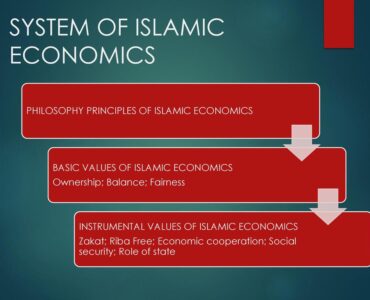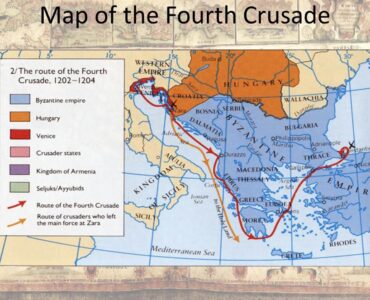
Heaven
In the Qurʿān, heaven is very much linked with the sky (al-samāʿ, pl., al-samāwāt). Allah is referred to as having sent down his message to Earth. Originally, heaven and earth were united, and Allah separated them (Qurʿān 21:16). There is a reference to seven heavens in the Qurʿān (2:29), each with specific roles, often connected with climate. Heaven is referred to as a “well-supported roof” (21:32), which only stays in place as a result of divine influence. Allah and the angels live in heaven. Even heaven will not last forever because Allah will “roll it up like a scroll” (21:104), and in this respect it is closely linked with the earth. Allah treats heaven not so much as an abode but rather as a physical place, which eventually, like everything else, will come to an end.
Heaven is also often connected to paradise. During his “Night Journey” Muḥammad was guided by Jibril (the angel Gabriel) through the seven heavens to “the lote tree,” which is often taken to be near paradise. Islamic theologians have discussed these events and how heaven affects Earth; in particular, how the lower heaven controls the climate of Earth and also destroys those who set themselves up against Allah, sometimes through plagues (2:59) or stones (8:32, 11:82, 104:4). The order of the heavens was itself directed by Allah (41:12); He then climbed onto His throne (7:54) and organized the whole of creation from that lofty position.
Heaven and paradise are described in very material terms, but theologians like al-Ghazālī (d. 1111 AD) have pointed out that this is not necessarily how they are meant to be understood. For those who are spiritually more attuned to hidden meanings, the material language of the Qurʿān can be taken to describe a range of different states of awareness of Allah, rather than physical conditions. The different ranks of heaven are then seen as something much deeper than a physical description, although for many people a physical description of heaven is all that they need to grasp some basic facts about their dependency on Allah and His role in the creation of the universe.
In Islamic theology the discussion of heaven and hell is extensive, with the Ashʿarīs arguing that Allah can send anyone to heaven, whereas the Muʿtazilīs take the position that Allah must reward the virtuous and punish the evil, based on the veracity of revealed promises and threats. By some accounts there is a period of waiting for some people (in the barzakh) in an intermediate state after death before they enter heaven, and even an opportunity for their eventual fate to be improved through intercession by their living relatives, who can help overcome the negative effects of their actions during their lives. They will wait cheerfully if they are told that eventually they will be admitted to heaven, but if their eventual destination is hell, then their period of waiting will be miserable. Some accounts specify that a number of people will go straight to heaven without having to wait, these include the saints, the poor, and martyrs, while most people will have to wait until the Day of Judgment and the final decision on their fate.
Heaven
621 – 003
Last Update: 04/2021
Copyright © 2017-2021 Institute for the Study of Islam (ISI) | Institute-for-the-study-of-Islam-org | Discerning Islam | Discerning-Islam.org | Commentaries on Islam | © 2020 Tips Of The Iceberg | © 1978 marketplace-values.org | Values In The Marketplace | are considered “Trade Marks and Trade Names” ®️ by the Colorado Secretary of State. All Rights Reserved.



